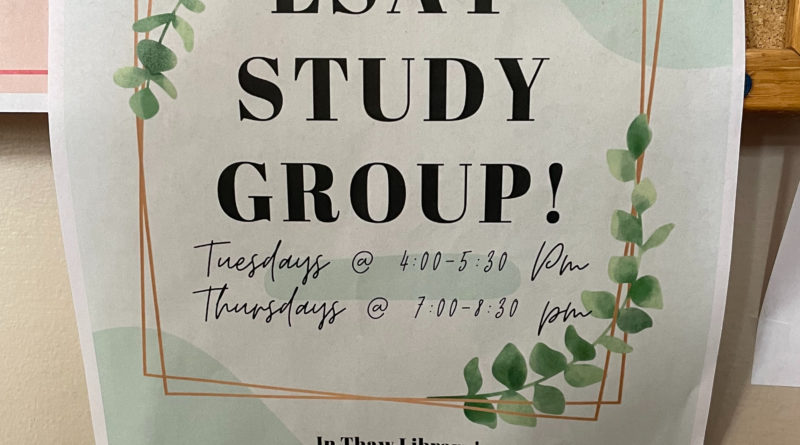Preparing for a Career in Law as a MC Student
Although there is no official Pre-Law major at Maryville College, there are many opportunities for students to prepare for law school and a future career in law.
Marissa Nelson, a senior Writing Communication major, says that she wants to be an attorney because of her passion for the school-to-prison pipeline, sparked when Nelson witnessed some family members fall victim to this pipeline. “I certainly don’t excuse what [my family] did…but I do think that once you get in trouble, it is very easy to keep on getting…picked on,” Nelson said.
Nelson has plans to take a gap year and work as a paralegal to save up money and dedicate herself to studying for the Law School Admission Test (LSAT). Afterward, she hopes to continue onto the University of Tennessee’s College of Law in Knoxville, so that she can stay local. She plans to go into appeals or be a guardian ad litems (GAL) for the Department of Children’s Services (DCS). A GAL is a court-appointed attorney who investigates a case and reports their findings and recommendations to the court.
Nelson runs an LSAT study group at Maryville College because she knows just how hard she and her fellow students need to work to get a good score. “It is kind-of hard to study for because it is not a black-and-white thing…it is a very brain-teaser-type thing,” said Nelson. “I think it scares a lot of people because they think ‘Oh, it’s just gonna be nothing but questions about law,’ when really it’s just to see how well you can think.”
The LSAT, which costs $215 to take, consists of a multiple-choice section and a writing section. According to the Law School Admissions Council website, the LSAT is the only standardized law school test and is accepted by every school approved by the American Bar Association.
The LSAT is not the only thing that students preparing for law school have to worry about. Nelson says that networking is key. “It’s not what you know; it’s who you know. But [networking] is something that anybody can do,” Nelson said.
Nelson had an internship with DCS, which is where she worked and talked with the GALs, and has working relationships with three judges. She also graduated high school with over 700 service-learning hours and has worked with the Non-Profit Leadership Alliance.
Nelson manages her time and only gets involved when she is sure she can keep her commitment. She felt that campus extracurriculars wouldn’t benefit her law school application, or they would take up far too much time. Instead, Nelson has dedicated herself to the local chapter of Court Appointed Special Advocates (CASA) as their first volunteer in a long time. CASA is a national association that supports and promotes court-appointed advocates for abused or neglected children.
Dr. Niklas Trzaskowski, Research and Career Development Coordinator at MC’s Career Center, believes that networking and strategizing where to spend your time is highly important. He thinks that Maryville College’s programs provide students the opportunity to achieve very special things.
“The experiences that you are provided [at Maryville College] can set you apart from other applicants,” Dr. Trzaskowski said. He highlighted the senior study and internship requirement. “Even if it’s not directly related to a career in law, what it does is…communicate to an admissions committee that you can balance your time, that you can pursue [these opportunities], while also succeeding academically.”
Dr. Trzaskowski thinks that internships, degrees and extracurriculars can make or break an application, and the choices a Pre-Law student makes about those programs should either help them strengthen or showcase skills that will assist them in law school.
He recommends the Occupational Information Network to students looking for what skills they will need for certain jobs. Their website shows that lawyers in the US make roughly $127,990 on average and shows a “bright outlook” for current and future lawyers. In terms of skills for lawyers, the site recommends knowledge of law and government, the English language, customer and personal service, administration and management, and personnel and human resources.
All of these skills play into what MC students choose for their internships, majors, jobs and extracurriculars. While a MC education is quite rigorous, students here prove themselves every day by balancing life, work, school, and career preparation.

